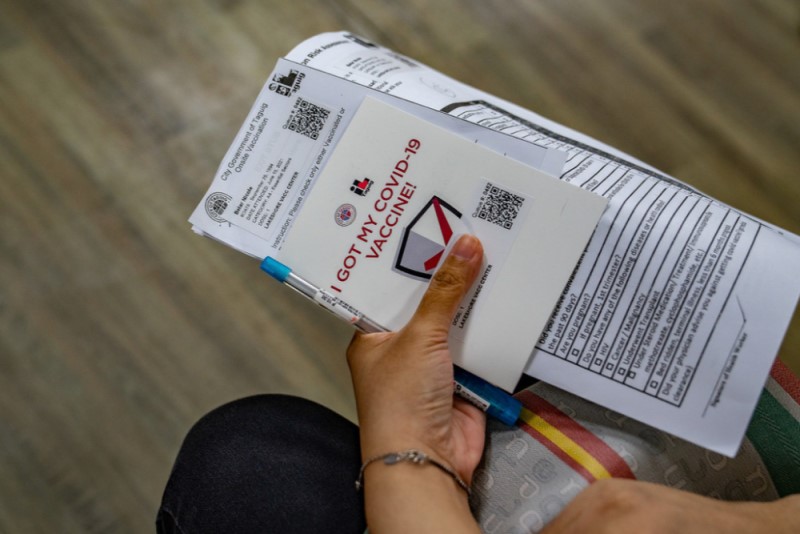ASEAN to Develop One System for Verifying Vaccinated Travelers

The ASEAN universal verification mechanism will use digital technology and ensure data privacy protection and security. Photo credit: Asian Development Bank.
Health ministers of Southeast Asia have agreed to work toward mutual recognition of COVID-19 vaccination certificates to facilitate travel across the region as countries reopen their borders. This will involve putting in place an ASEAN universal verification mechanism that uses digital technology while ensuring data privacy protection and security.
According to the ASEAN BioDiaspora Virtual Center, more than 400 million people in the region have been fully vaccinated as of 4 May. This is roughly 60% of the population.
Cooperation on the mutual recognition of COVID-19 vaccination certificates was agreed upon at the 15th ASEAN Health Ministers Meeting in Bali, Indonesia this month.
Digitally signed QR code
The ministers said all COVID-19 Vaccination Certificates issued by ASEAN member states will have a secure QR code that is digitally signed to protect it against falsification. They clarified that the ASEAN universal verification mechanism will be voluntarily implemented by member states and that it is meant only to authenticate the vaccination certificates. The prevailing immigration and mandatory health protocols of each ASEAN state will be upheld.
The verification mechanism will be created according to the World Health Organization’s Digital Documentation of COVID-19 Certificates. The WHO issued a guidance document in 27 August 2021, which provides the “technical requirements for developing digital information systems for issuing standards-based interoperable digital certificates for COVID-19 vaccination status, and considerations for implementation of such systems, for the purposes of continuity of care, and proof of vaccination.”
The health ministers said the ASEAN Secretariat will manage the ASEAN universal verification mechanism to ensure transparency, neutrality, confidentiality, integrity, and availability.
This initiative supports other efforts to ensure smooth and safe travel within and to and from the ASEAN region. These include the ASEAN Health Protocol, Cross-border Contact Tracing and Rapid Outbreak Investigation, and ASEAN Travel Corridor Arrangement Framework.
Countries in the region have opened COVID-19 vaccinated travel lanes on a bilateral basis, which is expected to pave the way for the opening of more travel corridors between ASEAN states. For example, Malaysia currently has a vaccinated travel lane by air with Cambodia, Singapore, and Thailand to facilitate two-way travel by individuals who have been fully vaccinated.
Strengthening health and emergency systems
The health ministers also discussed and exchanged views on efforts to enhance preparedness and response to future health challenges. In particular, they agreed to explore “an expanded regional funding mechanism for COVID-19, from ASEAN COVID-19 Response Fund to ASEAN Emergency Health Fund and the ASEAN Regional Reserve for Medical Supplies” and ensure timeliness and efficiency of accessing and using these resources. They also pushed for the accelerated establishment and operationalization of the ASEAN Centre of Public Health Emergencies and Emerging Diseases (ACPHEED).
The ministers agreed to strengthen the detection of public health emergencies through the use of regional big data analytics, such as the ASEAN BioDiaspora Virtual Centre and global genomic sequencing data sharing platform, and other measures. They will also work to enhance mitigation strategies and improve access to vaccines, therapeutics, and diagnostics and other essential medical supplies.
The next meeting of health ministers will be in the Lao People’s Democratic Republic in 2024.
This was originally posted on the BIMP-EAGA website.
Last Updated: 29 May 2022
